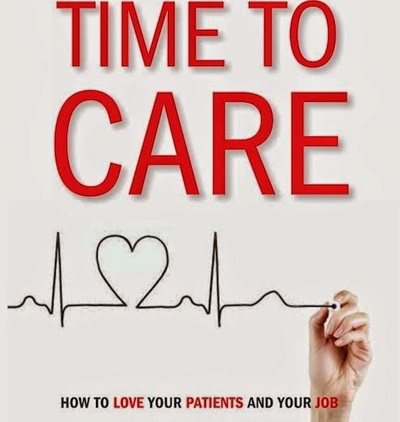For most of us, dealing with sickness is something that happens occasionally and on a very personal level. However, for health care professionals, dealing with illness – minor and major – is an every-day event.
 Robin Youngson understands that the health care system often fails both patients and practitioners, that in this busy world we now live in, medical professionals sometimes overlook the person behind the illness. Because of this, the health system is failing at a worldwide level: patients are no longer seen as a whole person but simply as a selection of symptoms.
Robin Youngson understands that the health care system often fails both patients and practitioners, that in this busy world we now live in, medical professionals sometimes overlook the person behind the illness. Because of this, the health system is failing at a worldwide level: patients are no longer seen as a whole person but simply as a selection of symptoms.
It’s safe to say no doctor or other medical person began their career with plans to become emotionally distant from their patients but as they come under more and more pressure, it’s likely that often the best way they can see to get through a growing workload is to become more and more detached from their patients, almost dehumanising them to a degree.
And it’s not just the patients who suffer in this situation, it is the medical staff as well: they lose the opportunity to feel true job satisfaction, to fully appreciate the positive results of the work they do.
British-trained anaesthesiologist Youngson has long been an advocate of the importance of putting people at the forefront of health care by getting to know the the person and not just the illness. He has been practising in New Zealand for two decades and as well as his clinical work, he was also a founding member of the national Quality Improvement Committee in New Zealand and has advised the World Health Organisation on strategies for patient safety and putting people at the centre of health care.
He has produced a book that was primarily aimed at a medical world but it deserves a much wider audience.
I’ve had my own assorted health problems over the past year or so that have required specialist care, hospital stays and enough doctor visits to fund a small mortgage and I have been fortunate to have a range of doctors and nurses looking after me who have made me feel that I matter as a person. However, I have heard horror stories from others that highlight just how lucky I have been and when you hear the stress in the voice of someone recounting a bad or dismissive medical experience, you begin to understand just how much not feeling important can impact on recovery.
Youngson gets it, he knows that for the good of the patients, the practitioners and for the system we need to care.
He is passionate about the importance of whole-patient care and every one of us – as potential patients of the future – should be equally as passionate.
Time to Care, available from Rebelheart Publishers, PO Box 63, Raglan 3265; or online from time-to-care.com, amazon.com and amazon.co.uk.
